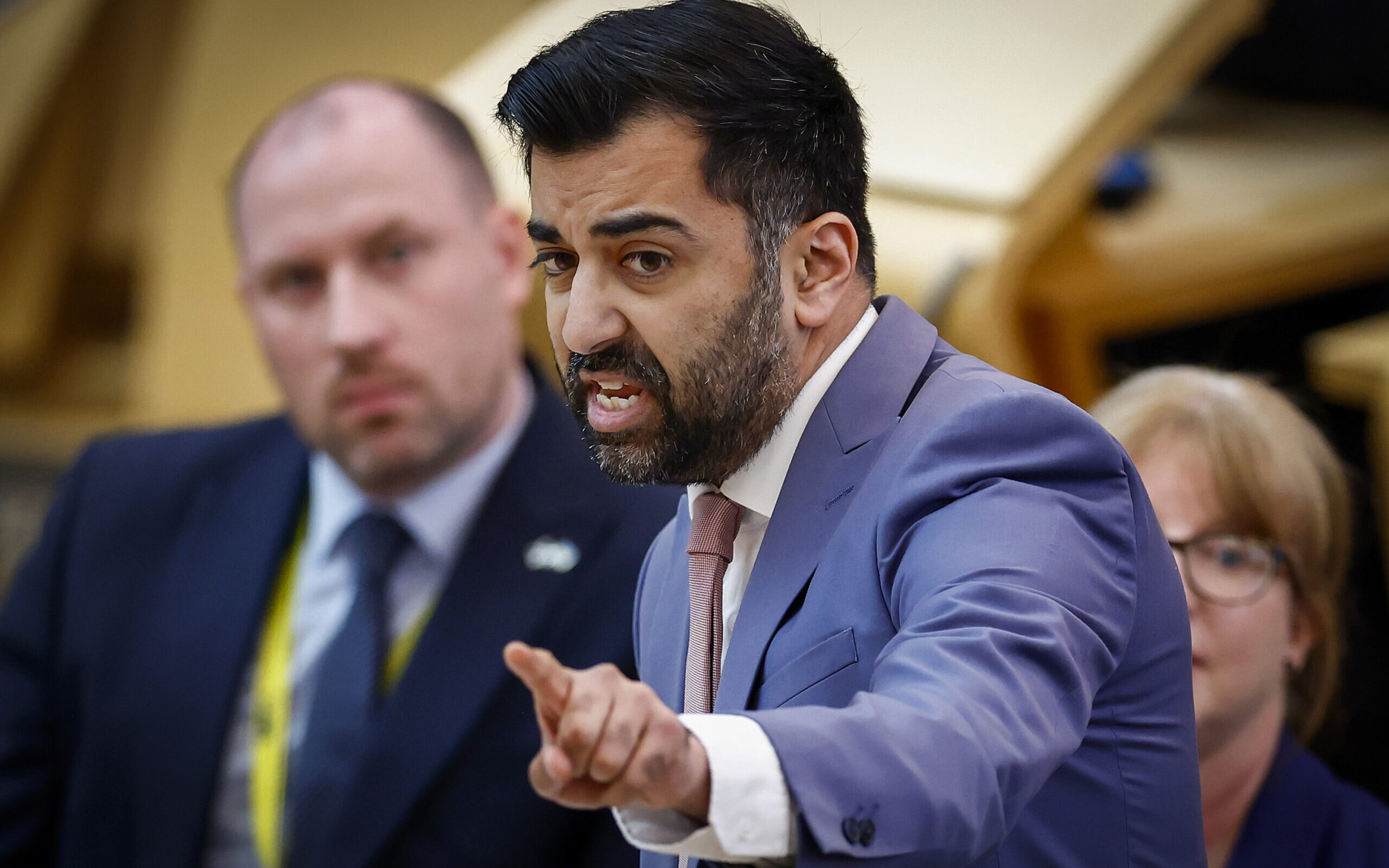What has gone wrong with politics in Scotland? It’s only two months since a wildly irresponsible piece of legislation, allowing men to change their legal sex without safeguards, helped to bring down the country’s First Minister, Nicola Sturgeon. You might think that Humza Yousaf, who has taken over as leader in the midst of a significant crisis within the SNP, would think twice about pressing ahead with reforms that have attracted such widespread ridicule.
Think again. At the weekend, the new First Minister signalled that he intends to go to court to challenge the UK Government’s veto of the Gender Recognition Reform bill. It’s a bizarre decision, reviving a controversy that’s lost the SNP thousands of members, but maybe the party is desperate for any headlines that might distract attention from the police investigation into its finances.
Sturgeon’s husband, Peter Murrell, who was the SNP’s chief executive for many years, was arrested and questioned for twelve hours last week. He was released without charge but new and lurid details of the investigation are emerging every day. The couple deny any wrongdoing, but any hope that Sturgeon’s resignation would draw a line under the party’s troubles has been dashed.
Challenging the UK Government’s Section 35 order in court provides an opportunity to grandstand about ‘interference’ in Scottish affairs. Ian Blackford, who was ousted as leader of the SNP at Westminster in December, did just that at the weekend, describing the Scottish Secretary’s veto of the bill as a “democratic outrage”. Many might think that the phrase is more applicable to resuscitating a piece of legislation that so patently lacks popular support, and which was passed at Holyrood in the face of credible warnings that it would be used by sexual predators.
But the bigger question is why women’s concerns have become so easily disregarded in Scotland. Last week, it emerged that new sentencing guidelines mean that convicted rapists under the age of 25 may be able to avoid a custodial sentence because — apparently — their brains are not fully developed. Sentencing Sean Hogg, who raped a 13-year-old girl when he was 17, a judge said he would have imposed a four- or five-year prison sentence if Hogg had been over the age of 25. Instead, he has to do 270 hours of community service, prompting the author JK Rowling to suggest that young Scottish men are being told ‘first time’s free’.
Not even a week later, the Scottish Labour leader, Anas Sarwar, called on Sir Keir Starmer to pass a law allowing 16-year-olds to change their legal sex should his party win the next general election. In Scotland, politicians evidently believe that schoolchildren are mature enough to make life-changing decisions about transitioning. But the criminal justice system takes a very different view when it comes to understanding the consequences of attacking girls and women.
When the double rapist Adam Graham appeared in court in Glasgow in January, wearing a blonde wig and calling himself ‘Isla Bryson’, it felt like a mortal blow had been delivered against trans ideology. For the first time, many people in Scotland realised just how fragile women’s rights have become as politicians listen to lobby groups who insist that ‘gender identity’ trumps biology. Now Yousaf is trying to resurrect Sturgeon’s zombie gender reforms. Whether he’s a true believer in this deeply flawed legislation, rather than just cynically looking for an opportunity to blow raspberries at Westminster and distract from his own party’s failings, is immaterial. Either way, the SNP is not standing up for women.











Join the discussion
Join like minded readers that support our journalism by becoming a paid subscriber
To join the discussion in the comments, become a paid subscriber.
Join like minded readers that support our journalism, read unlimited articles and enjoy other subscriber-only benefits.
Subscribe